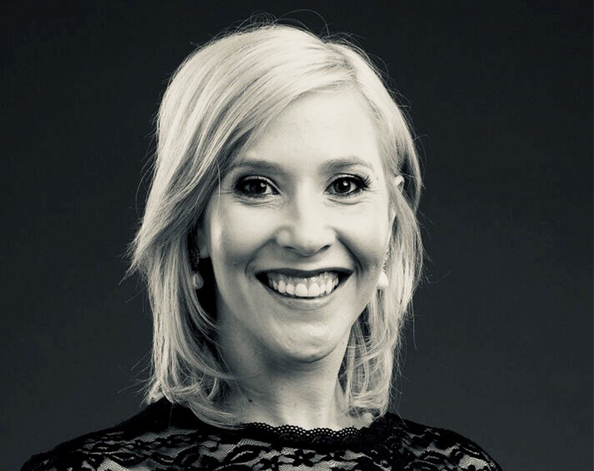We hear the phrase “global citizen” a lot more these days, reflecting the fact that in today’s globalised world, more and more people no longer see themselves as tied to one particular country or market.
Your business may take you to different countries, or you may seek out fresh opportunities in other parts of the world or, even if you are happily settled in one country, your children may be carving out a life for themselves on the other side of the globe.
The relaxation of exchange controls over the last three decades has meant that many South African residents have been able to externalise their wealth and are looking to continue to allocate some of their wealth to offshore markets in the future.
The opportunities to be a global citizen may have increased, but so has the realisation of the complexities that come with this status. Each country has its own tax laws and regulations that affect not only the assets you hold in that country, but potentially also assets held in other countries too.
In this five-part series we cover some of the most important things you need to know when either investing overseas or living abroad. Our in-house experts chat to leading professionals in different countries – the US, UK, Mauritius and Australia – all of whom have worked with Investec and have a wealth of experience in helping South Africans.
Do you need our team of international experts to contact you?
We'd like to know what you thought of this series
By clicking ‘Submit’, you consent for your contact details, and other personal information provided, to be processed by Investec for purposes of assisting you fully in your request.
Should you require more information, please refer to our Privacy Policy.
Co-founder and former Investec CEO Stephen Koseff helped turn a South African business into an international one. Along the way he’s learned some valuable lessons, not just in running a business in different countries (notably in South Africa and the UK), but also from a personal perspective. He also has family in Australia and spends some time there with them, so is the perfect example of a truly global citizen.
He is joined by Elizabeth Fick and Rene van Zyl, joint heads of Investec’s Tax & Fiduciary team, with the discussion moderated by Nozipho Tshabalala. They delve into some of the key learnings for anyone looking to invest or live abroad – including from a tax, estate planning and exchange control point of view, drawing personal insights from Stephen’s experience in different countries.
First, the panel discusses the complexities one has to deal with as a global citizen with family in different countries, including managing of assets offshore and other complexities, including tax, Reserve Bank regulation and from a probate perspective.
They then talk about the implications for cross-border, multigenerational tax planning, and how this has an impact on the holding of assets in different countries, particularly when it comes to situs.
Estate planning and exchange controls are discussed next, with particular attention paid to the way the Reserve Bank and tax authorities define residence, as well as the impact on trusts.
Finally, we touch on how Investec can help you and your family to set yourselves up in a different geography, explaining the differences between permanent residence and tax residence, the different ways different countries tax trusts, and some planning ideas before arriving.
“Get advice early on. Keep things simple and then continually get advice. This is not a one day game.” – Stephen Koseff

Listen to the podcast
Stanley Barg, from Kozusko Harris Duncan in New York, joins Rene van Zyl and moderator Nozipho Tshabalala as they delve into the most important aspects to consider when investing in or moving to the US.
They look at the key things to bear in mind when it comes to the different ways in which a person can become liable for US tax – from full US citizenship to green card to dual residence.
The panel also makes particular reference to the concept of substantial residence and explains what this practically means.
Trusts and the way these are taxed is also covered by the panel, including the impact on US beneficiaries of South African trusts or trusts registered elsewhere.
Stanley and Rene then discuss what the implications are on US situs assets, with particular reference to US investment portfolios and real estate as well as gifts and bequests.
"As opposed to some countries where trusts may be regarded as being a tax avoidance issue, from the US perspective it's not particularly a problem to have a trust. But it depends on what the type of trust and that can make a huge difference on how it's taxed from.” – Stanley Barg

Each country has its own laws, its own procedures, not only when it comes to your last wishes, but also in the way it taxes offshore structures.

Listen to the podcast
Locating to Mauritius has become a popular move for South Africans. Apart from the climate and lifestyle, there are other advantages to living there or holding assets on the island state. Nozipho Tshabalala chats to Rene van Zyl and Gordon Stuart, Managing Director of the Accuro office in Mauritius.
Gordon is a South African who has made the move himself, and he offers some personal insights about the lifestyle and culture of the island, as well as some practical thoughts on relocating yourself or your assets there.
The panel goes into the ins and outs of the different ways of acquiring residence and what rights and obligations come with this.
Gordon highlights changes to the Mauritian tax regime in recent years that may have a bearing on the decision to relocate.
The panel also discusses what you would need to know when acquiring property in Mauritius, as well as the advantages of using Mauritius as a destination for estate planning and business structures.
Finally, they discuss issues such as the cost of doing business in Mauritius and specific regulations that need to be borne in mind.
“Under Mauritian law a portion of the estate is reserved for the children of the deceased, and this means that no testamentary provision may encroach upon this reserved portion,” – Gordon Stuart

Listen to the podcast
South Africa and the UK have long had close ties, with many South Africans being of UK descent or with family ties there. It also remains a popular destination for South Africans to emigrate to or throuh which to manage their assets.
Nozipho Tshabalala talks to Lizzie Fick and Catherine de Maid, partner at Burges Salmon. Catherine has extensive experience with helping South Africans to transfer their assets to the UK, and previously worked in Investec’s Cape Town office.
The panel goes into one of the key issues that needs to be understood, that of residence and domicile,. They explain the UK’s statutory residence test and why this has nothing to do with intention but is linked to the number of days per year spent in the UK.
They deal with the complexities of the domicile concept, especially when it comes to understanding a person’s liability to inheritance tax (or estate duty) in the UK.
Catherine explains the remittance basis of taxation for people who are UK resident, but not deemed to be domiciled.
The panel looks into aspects of being the settlor or beneficiary of an offshore trust, and what this means for those moving to the UK.
“With the right advice and the right planning, you can structure yourself to live very tax efficiently in the UK by effectively limiting the amount of foreign incoming gains you bring into the UK.” - Catherine de Maid

Listen to the podcast
Australia is another popular destination for South Africans looking to move abroad, with a sizeable and thriving community of South Africans now living there. Many are drawn by the similar climate, culture and lifestyle to South Africa, but there are some important differences, which need to be taken into account.
Nozipho Tshabalala talks to Lizzie Fick and Jonathan Ortner, partner at Arnold Bloch Leibler, about the key points to bear in mind when it comes to tax residency, whether for an individual, company or trust – with particular attention to dual residency.
When it comes to trusts, they discuss the different aspects to bear in mind, including for an Australian resident beneficiary receiving a distribution from a foreign trust.
They also discuss corporate income tax, as well as the impact of gifts and donations across jurisdictions.
The panel also outlines steps a South African can take prior to moving to Australia, such as exit taxes and winding up foreign trusts or companies, where appropriate.
“It’s important that appropriate tax planning is undertaken prior to coming into Australia. Too often we see families or individuals coming over here and then getting the advice and by that time it’s just too late. It’s really important as well, when getting that advice, that the individual is clear about their intentions because that shapes the advice that will be given.” – Jonathan Ortner
Do you have a question for our panel, or need assistance in externalising your wealth to the US, Mauritius, UK or Australia?
Contact your private banker or investment manager to assist you with this process.
About the author

Patrick Lawlor
Editor
Patrick writes and edits content for Investec Wealth & Investment, and Corporate and Institutional Banking, including editing the Daily View, Monthly View, and One Magazine - an online publication for Investec's Wealth clients. Patrick was a financial journalist for many years for publications such as Financial Mail, Finweek, and Business Report. He holds a BA and a PDM (Bus.Admin.) both from Wits University.
Get Focus insights straight to your inbox
By clicking ‘Submit’, you consent for your contact details, and other personal information provided, to be processed by Investec for purposes of assisting you fully in your request.
Should you require more information, please refer to our Privacy Policy.








